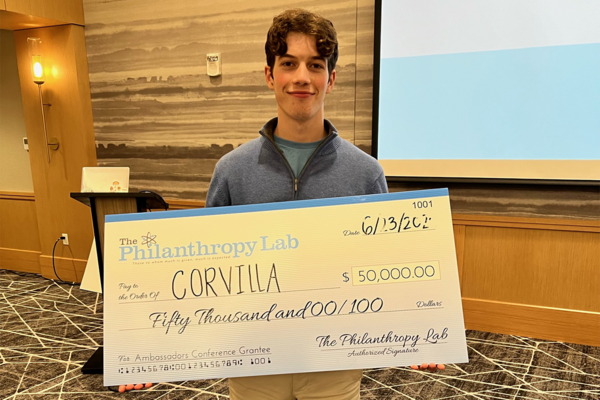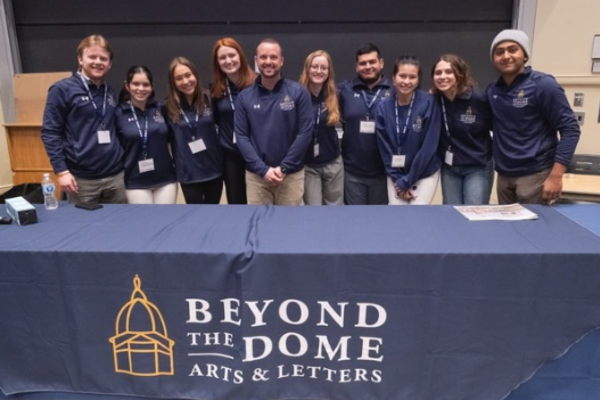This story was originally published in The Observer, Notre Dame’s student-run print and online newspaper.
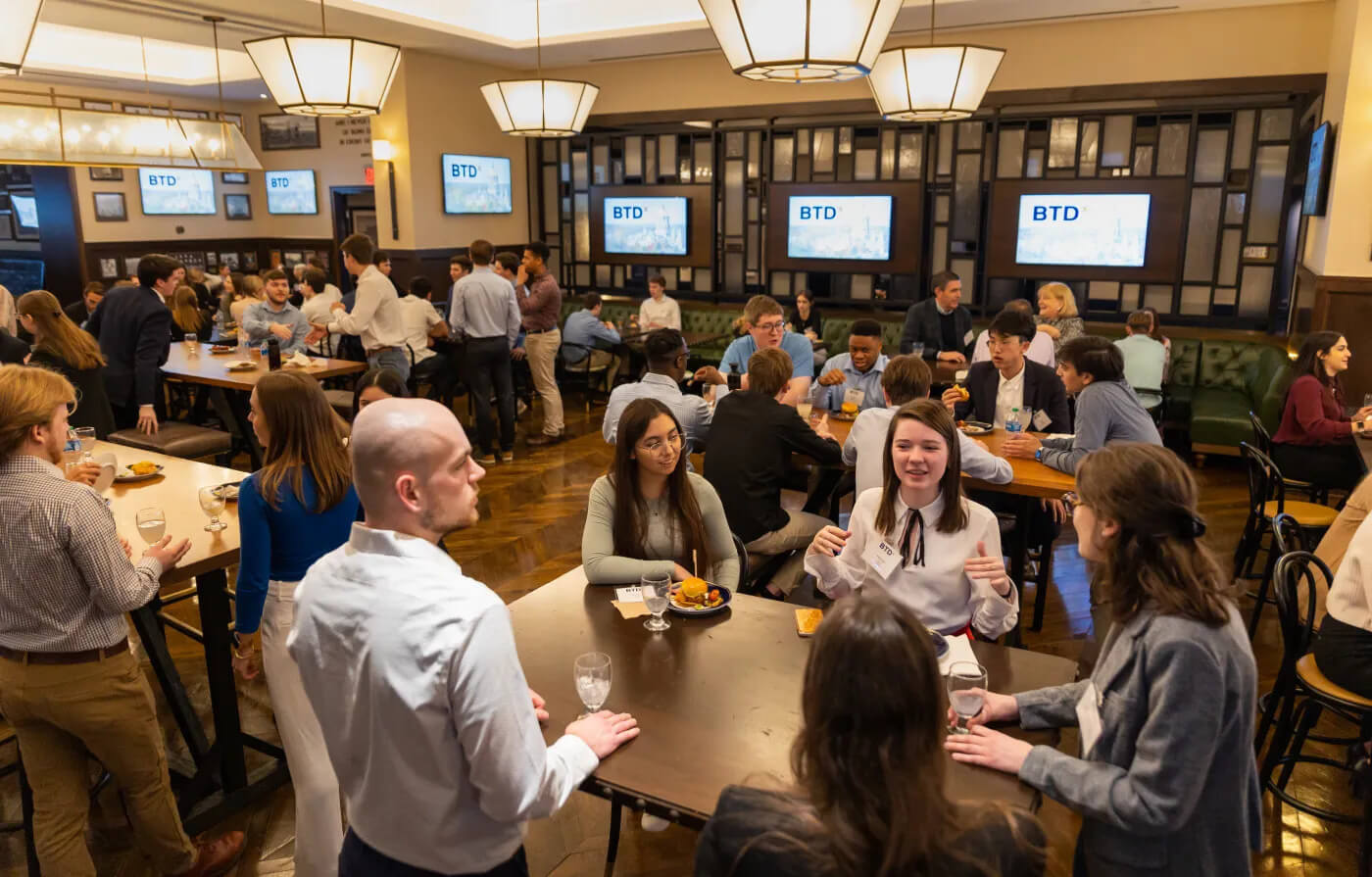
If students in the College of Arts and Letters haven’t tuned in to Beyond the Dome’s (BTD) new podcast, YouTube channel or LinkedIn page, they may have noticed 40-plus emails from the “bespoke” career development program since Aug. 2022.
Branded as a toolkit to guide Arts and Letters students through career discernment, BTD — an endowed initiative of the Arts and Letters dean’s office — was first introduced over two years ago.
But under Arts and Letters career program manager Jared Mrozinske, who assumed his role in December 2021 after years of working on startups, BTD has ramped up programming.
“Its big coming out party was definitely kicked off this fall,” Mrozinske said.

A partner of undergraduate career services but not another career center, BTD functions a mechanism to “de-stress” the career development process for Arts and Letters students, Mrozinske said.
“We empower Arts and Letters students to understand the inherent skills that they have and how to break into whatever career path they want with those skills,” he said.
The core of the original BTD was its peer-mentoring program called Peers to Careers (P2C) — a network of “up to 90” Arts and Letters students trained to navigate career resources — in every dorm on campus.
The first thing Mrozinske did as BTD’s director, he explained, was create the P2C Board of Creators — a biweekly-convening body of “innovative” Arts and Letters students with titles like ”chief buzz ambassador” or ”chief data alchemist.”
Board director, or chief inspiration officer, Lucy Langholz said as a first-year in Arts and Letters wanting to go into business, she was faced with a common Notre Dame conundrum.
“A huge decision for me was whether or not to transfer into Mendoza,” Langholz said.
After choosing to stay as an anthropology and global affairs major, Langholz said she is grateful for the chance to “study everything and do anything.”
“I’ve really tried to embody that [tagline],” Langholz said. “I feel like Arts and Letters has given me the opportunity to gain as much from my college experience as I can.”
“These programs aren’t designed to test you — they’re there to help you. We’re hoping that everything we’re doing is, again, de-stressing (the career discernment) process a little bit and showing that it’s not that scary.”
Throughout this year, Langholz and the P2C board have generated “buy-in” from their peers by hosting an Imagine A World case competitions with Teach for America and Accenture in the fall and spring semesters, respectively, setting up a networking session with the CIA and launching BTDx — a business and consulting initiative with McKinsey & Co.
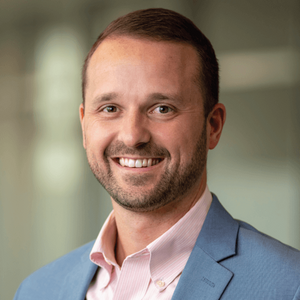
“Most of these event ideas came from conversations with [the P2C board] about what we wished we had as students, with the end goal of boosting career readiness and overall confidence in Arts and Letters degrees,” Langholz said.
Senior Jack Loesch, a P2C career community leader for healthcare who advises peers preparing for medical school or interested in fields like healthcare consulting, said BTD’s networking opportunities have been so enticing as to attract students outside of Arts and Letters.
“There’s been a lot of Mendoza students or other students that have tried to enter these competitions or come to these events,” Loesch said. “We have to tell them ‘no’ because it’s just for Arts and Letters.”
BTD newsletter alumni spotlight columnist, junior Caitlyn McHenry, who also connects peers with industry leaders in media, said BTD is more rewarding because it’s all done by student volunteers.
“I don’t get paid or anything like that, and I almost prefer that because there’s integrity and authenticity in that,” McHenry said. “I absolutely have loved meeting all the students that I’ve helped and knowing that I can help them ease the fear of trying to find a career, trying to find that internship and not really knowing who to go to or what they really want to do — helping clarify that for them.”
Loesch said initiatives like BTD and P2C are necessary because while Arts and Letters majors can enter any field and be very successful, the track is not as “cut-and-dried.”
“As opposed to the more direct routes that you might find in the Mendoza College of Business or in engineering, you have to be a little bit more driven as an Arts and Letters major with your degree in terms of figuring out what career path is best for you,” Loesch said.
Arts and Letters students come in with “incredibly thoughtful reasons” for picking their major, Mrozinske said. But over the course of four years, pressure stacks up — self-pressure, peer-pressure, family-pressure and student loan debt — and students feel pushed to “just get a job,” he said.
“These programs aren’t designed to test you — they’re there to help you,” Mrozinske said. “We’re hoping that everything we’re doing is, again, de-stressing that process a little bit and showing that it’s not that scary. It’s not that scary to talk to a partner at McKinsey or the exec at Atlantic Records. They’re just regular people just like you were at one point. They didn’t know what they were doing either.”
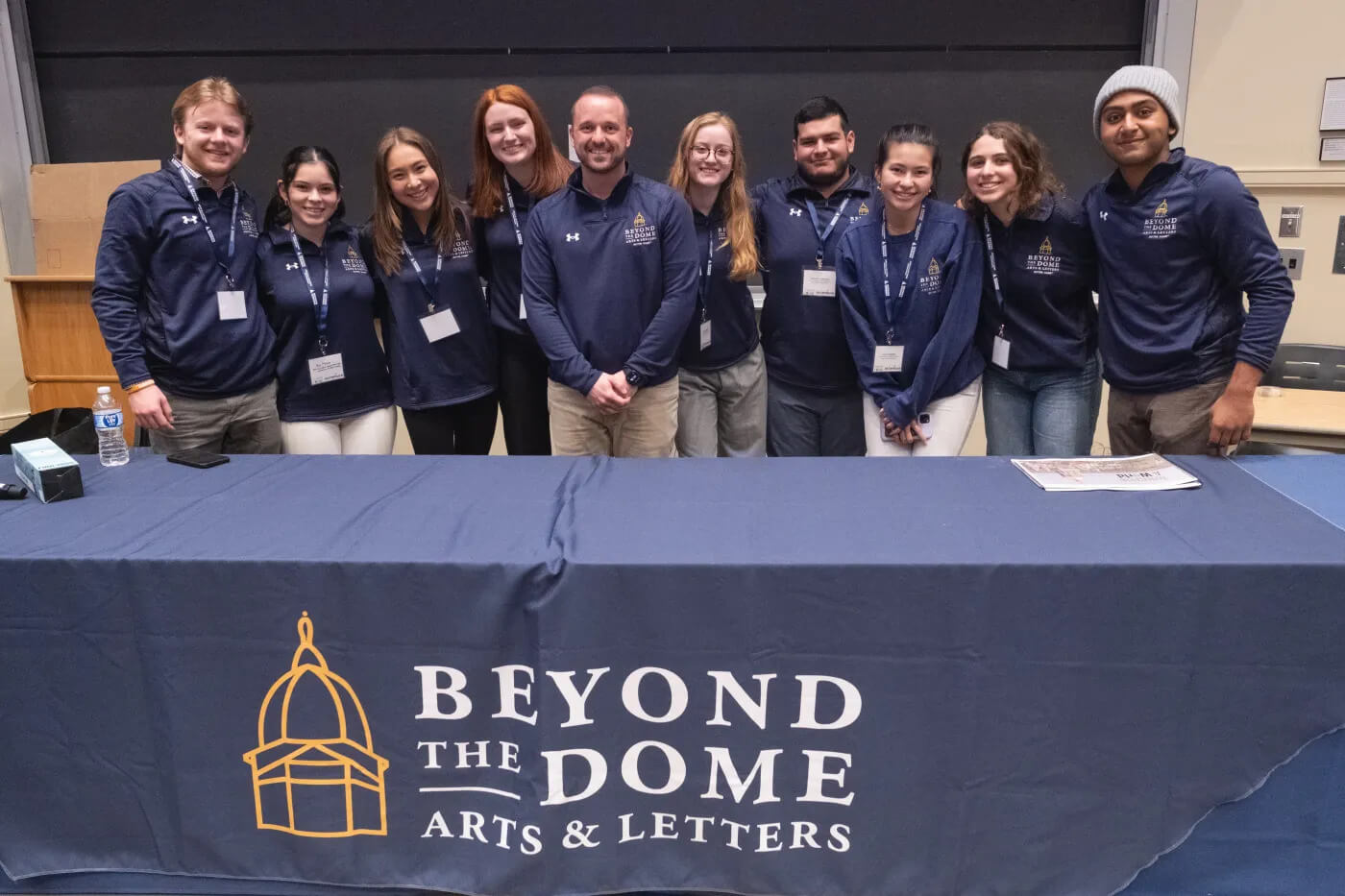
Mrozinske said the very name of BTD’s podcast — co-hosted by him and Langholz — “You’re Probably Okay,” affirms to Arts and Letters students that graduates can be “just about anything” they want after they “retire from college.”
An alum of Purdue University, Mrozinske explained when he came to Notre Dame, he was struck by how many people would go for runs around campus.
“I was thinking — a three-mile run — it’s probably 30 to 45 minutes,” Mrozinske said. “Beyond the Dome is trying to reach everybody. We can’t drag students to the events. We can’t force them to even read the newsletter emails. Why don’t we just put an episode in the air? They can listen to it on their own time.”
Through the five episodes of “You’re Probably Okay” season one, Mrozinske and Langholz take in stories from a selection of “Notre Dame’s finest” Arts and Letters outputs, including the founder of campus’s Apple Computer club who became CIO of Coca-Cola and a medieval ecclesiology scholar turned salesman.
“The ladder of success is not always up,” Langholtz recites in the podcast’s introductory loop. “At times it’s sideways or even down, but it always leads where you’re supposed to be.”
“The ladder of success is not always up. At times it’s sideways or even down, but it always leads where you’re supposed to be.”

